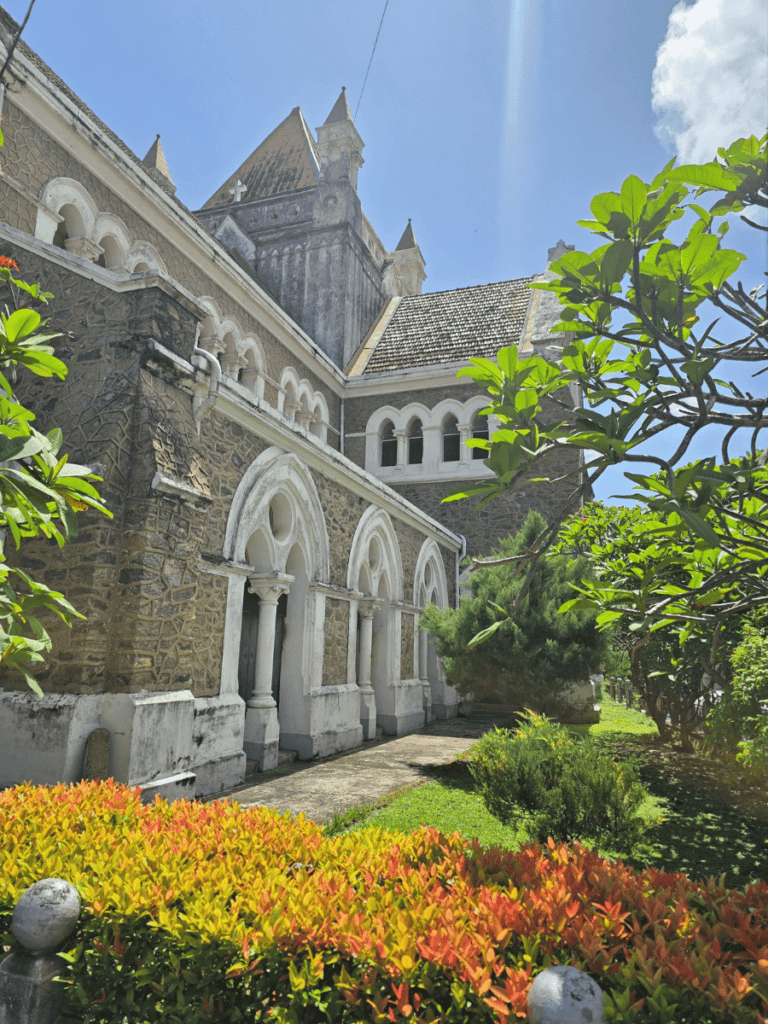In late 2024, I had the privilege of returning to Sri Lanka, a naturally beautiful island nation rich in culture, cuisine, and scenic landscapes. This trip coincided with the eve of a major presidential election, a period that highlighted the country’s ongoing sociopolitical changes. It also marked nearly 20 years since the devastating Boxing Day tsunami, a reminder of Sri Lanka’s resilience. As I engaged with locals, many expressed quiet optimism, believing that the nation was approaching a turning point after years of economic and political turbulence.

Navigating Political Uncertainty While Travelling
Sri Lanka has long been a popular travel destination, boasting abundant wildlife, stunning beaches, and vibrant local communities. However, recent political and economic challenges, including the COVID-19 pandemic, have significantly impacted tourism and the livelihoods of many Sri Lankans.
During my visit, a sudden government announcement imposed a nighttime curfew in urban areas due to concerns over potential pre-election unrest. While initially unsettling, the elections proceeded with minimal disruption, and restrictions were quickly lifted. This experience underscored how rapidly political changes can affect travel plans.
To ensure a smooth journey, travellers should:
- Monitor local news and security updates before and during their trip.
- Register with Smartraveller for real-time updates and travel alerts.
- Stay in touch with their embassy in case of emergency situations.
- Follow local government directives to ensure personal safety.
- Check the U.S. Department of State travel advisory (travel.state.gov) for updated security guidance.

Health & Travel Medicine Considerations for Sri Lanka
As a developing country, Sri Lanka presents certain health considerations that travelers should prepare for. Consulting a travel doctor before departure is essential to ensure that vaccinations and preventive measures are in place.
Key Travel Health Risks & Precautions: 
-
- Food & Water Safety:
- Avoid drinking tap water; opt for bottled or purified water.
- Be cautious with street food and ensure meals are freshly cooked.
- Refer to CDC food and water safety guidelines.
- Mosquito-Borne Diseases:
- Dengue, Chikungunya, and Japanese Encephalitis are present.
- Use mosquito repellent and wear long-sleeved clothing, especially at dawn and dusk.
- Malaria has been eradicated in Sri Lanka but remain cautious when traveling to remote areas.
- Consult WHO’s mosquito-borne disease prevention guide.
- Rabies Risk:
- Avoid contact with stray dogs, monkeys, and bats, as rabies remains a concern.
- Consider a rabies vaccination if you plan to engage in outdoor activities or wildlife interactions.
- Learn more about rabies risks and prevention.
- Routine & Recommended Vaccinations:
- Ensure routine vaccines (such as measles, hepatitis A & B, and tetanus) are up to date.
- Consult with a TMA travel medicine clinic to determine additional vaccinations based on your itinerary.
- Food & Water Safety:
Visa & Entry Requirements
Travellers to Sri Lanka must obtain an eVisa before arrival. Requirements vary by nationality, so checking the latest updates on the official Sri Lankan immigration website is advised. Processing times can fluctuate, so apply in advance to avoid any last-minute issues.

Why Sri Lanka Remains a Must-Visit Destination
Despite its challenges, Sri Lanka continues to captivate travellers with its rich history, warm hospitality, and breathtaking landscapes. Whether you're exploring the cultural wonders of Kandy, relaxing on the pristine beaches of Unawatuna, or embarking on a safari in Yala National Park, Sri Lanka offers something for every traveler.
By taking the right precautions—both for political awareness and travel health—your journey to Sri Lanka can be both safe and unforgettable. Before your trip, book a consultation with your local TMA travel doctor to ensure you're fully prepared for a healthy adventure.